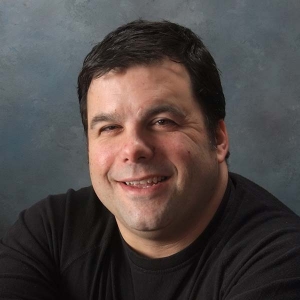
Dr. Robert Ambrose
Director of Bands
Georgia State University
Biography
Conductor Robert J. Ambrose enjoys a highly successful and diverse career as a dynamic and engaging musician. His musical interests cross many genres and can be seen in the wide range of professional activities he pursues. Ambrose studied formally at Boston College, Boston University, and Northwestern University, where he received the Doctor of Music degree in conducting.
Ambrose has conducted professionally across the United States as well as in Australia, Canada, Finland, Germany, Greece, Hong Kong, Singapore, and Taiwan. His interpretations have earned the enthusiastic praise of many leading composers including Pulitzer Prize winners Leslie Bassett, Michael Colgrass, and John Harbison. He has conducted over two dozen premiere performances including works by Michael Colgrass, Jonathan Newman, Joel Puckett, Christopher Theofanidis, and Joseph Turrin. In addition, a recent performance of Igor Stravinsky's Symphony of Psalms under his direction has been given repeated airings on Georgia Public Radio.
Dr. Ambrose is founder and music director of the Atlanta Chamber Winds a professional dectet specializing in the promotion of music by emerging composers as well as lesser-known works of established composers. Their premiere compact disc, Music from Paris was released in 2009 on the Albany Records label and has received outstanding reviews in both Fanfare Magazine and Gramophone Magazine.
As a guitarist Ambrose has performed in dozens of jazz ensembles, combos, rock bands and pit orchestras. His rock band "Hoochie Suit," formed with members of the Chicago Symphony Orchestra, received rave reviews throughout the Chicago area.
Ambrose currently serves as Director of Bands, Professor of Music and Associate Director of the School of Music at Georgia State University, a research institution of over 56,000 students located in Atlanta, Georgia. As Director of Bands he conducts the Symphonic Wind Ensemble, maintains a selective studio of graduate wind conducting students, and oversees a large, comprehensive band program comprised of four concert ensembles and three athletic band organizations. He lives in Peachtree City, Georgia with his wife Sarah Kruser Ambrose, a professional flute player, and daughters Isabelle and Hannah.
Session Titles
Choosing Quality Repertoire for the School Band
Teacher
Of all of the decisions that a band director makes in a given year, choosing what music to play is perhaps the most important. Our music serves as our curriculum and determines the quality of musical education and sensitivity that we are able to transmit to our ensemble. I hope to offer suggestions for answering: 1. How does one become knowledgeable about repertoire? 2. How does one determine the quality of piece of music? 3. What factors should one consider in programming for the short- and long-term?
Combining the Intellectual and Artistic: An Integrated Approach to Score Study
Teacher
The premise of this clinic is that there are two equally important steps in score preparation: (1) gaining knowledge through score study, and (2) using that knowledge to create an informed and artistic interpretation. Many times, however, the second step is overlooked. The clinic will begin by presenting a very detailed approach to score study. It will then focus on specific techniques for using what is gleaned during score study to create an informed and artistic performance.
Developing Rhythmic Accuracy and Awareness in Your Ensemble: Techniques and Strategies
Teacher
The purpose of this clinic is to provide techniques and strategies for developing rhythmic accuracy and awareness. All of the exercises can be done by individuals or in groups (ensemble). It is hoped that these exercises and techniques will provide a jumping off point for self-discovery and for the development of other interesting exercises. The handout covers far more material than can be presented in a one-hour clinic.
Simple And Practical Conducting Concepts Revisited
Teacher
Most people are not likely to have an epiphany from this lecture, but hopefully many will remember things that they once knew but that may have disappeared. It is not expected that all of these concepts will be used all the time every day. Find a little time each day with each ensemble you conduct to work on them. Conducting, like all musical pursuits, requires practice. These concepts must be practiced off the podium, away from musicians in order to get better.